Story from Oles Buzina
Hetman Mazepa was dying like a hero of pirate novels, surrounded by barrels of stolen gold and sacks of stolen diamonds. This was the entire state treasury of Ukraine, which he managed to appropriate and take away from Poltava to Bendery, a Moldavian town that was then on Turkish territory.
The Swedish State Archives preserved an account of the unforgettable spectacle of the fugitive hetman on his deathbed. “When I came to him,” writes Gustav Zoldan, an associate of Charles XII, “I found him very weak ... He asked me to stay with him and carefully monitor his things that were in his room, namely, a chest and two barrels, full of ducats, and behind a pair of travel bags containing all his jewels and a large number of gold medals. His travel bags were under his head, and the casks of his ducats were next to his bed. He also asked me that none of his people take out or take something from his room.
Death in chests
This document was first published back in 1903 in the journal Kyiv Starina by the historian Nikandr Vasilyevich Molchanovsky, the author of many studies on the Ukrainian past. His discovery is well known to specialists, but it is hidden from the general reader, since it paints Mazepa in a very unattractive light. As follows from the report of a Swede eyewitness, even when dying, the hetman is most worried about the safety of his wealth - that very beloved part of Ukraine, expressed in chervonets, which he managed to take away with emigration. In addition, he does not even trust his comrades-in-arms - the very “noble Mazepins” who make up his inner circle and the “greedy crowd”, in the immortal expression of Lermontov, are waiting for the death of their “ataman” in order to “fairly” divide his cash.
Who does this remind you of? Of course, all the same pirates with whom Western European eyewitnesses repeatedly compared the habits of the Cossacks! The only soul that Mazepa still trusted was his nephew, Andrei Voinarovsky, a very young man and the only heir to the hetman, who had no direct offspring. He was sitting in the same house in the next room. The envoy of Charles XII, leaving Mazepa, told Voinarovsky that he had an order from the king to look after the hetman and his things, which, according to him, "it was pleasant" to his nephew. Andrei was not popular among Mazepa's associates and could only count on the protection of the Swedish king, whose court and the remnants of the guard were right there in Bendery.
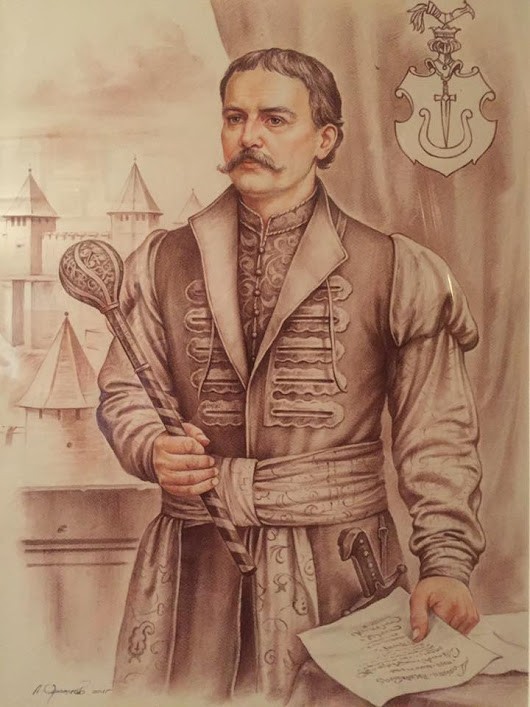
Mazepa's anxiety about his treasures is also psychologically explained by the fact that, like any person, he was not going to die and did not consider his illness to be fatal - he did not even have time to make a will. However, God judged otherwise. Apparently, the seventy-year-old adventurer, who served two Polish kings, one Turkish sultan, the Russian tsar and the Swedish king, completely tired him with his antics and change of political course, and he took him in on the night of September 21st to 22nd, according to the old style - that is, from the 5th to the 6th of October according to the new one.
As soon as Ivan Stepanovich "separated" from his treasury and passed into heavenly jurisdiction, his house was immediately sealed by the local Turkish authorities. However, Charles XII demanded that the property in it be transferred to Voinarovsky. The Turks surrendered, and, as the report of the same Gustav Zoldan testifies, the Turkish pasha "sent an order to the judge to remove the seal." On the same day, the barrels and sacks of gold were transferred to Voinarovsky's apartment, where they were at his "full disposal".
However, this was only the beginning of many years of adventures of the Mazepa treasures. Literally over the grave of the deceased, an ugly financial scandal erupted. The fugitive foreman, led by the clerk Orlyk, whom she wanted to elect the new hetman, said that Mazepa's wealth is not his personal property, but the state treasury of Ukraine, to which they all have a right. True, in Ukraine at that time there was another, completely legal hetman - Ivan Skoropadsky, elected not at the gangway of a handful of emigrants, but at the legal Rada in Glukhov immediately after Mazepa's flight. It would be logical to transfer all the money to Ukraine, but the "heirs" were not interested in distant Ukraine, but in its close and such a tasty treasury.
Litigation for an inheritance
Therefore, Orlik and his supporters turned to their “clearest protector” (“protector”), the Royal Majesty of Sweden, so that it would judge who owns the bags and barrels. But the Royal Majesty itself was in very tight financial circumstances after Poltava, having lost its army and honor, and was sitting helplessly on Turkish territory, waiting for a turn of fortune. It took the sudden chvara of the Cossack foreman for the inheritance as a sign from heaven to intercept easy money.
Everything that happened next is in the study of the famous Ukrainian historian Lubomyr Vinar, who works in the United States. This venerable scholar wrote a special work "Andrei Voinarovsky", the most interesting section of which is devoted to the adventures of the hetman's barrels and their division. I specifically refer to it so that our club-headed "patriots" understand that this plot is well developed in the West by emigrant nationalist science. If someone starts yelling, once again trying to accuse me of non-existent sins, then let him address all questions directly to the United States of America, where Lubomir Vinar, the founder of the Ukrainian Historian magazine and chairman of the World Scientific Council at the World Congress of Ukrainians - an organization that is incredibly respected by the current president Viktor Yushchenko, who in many ways resembles Mazepa.
But the main thing is not even this, but the fact that Vinar investigated the case of Mazepa's material heritage on the basis of archival data - both discovered personally and discovered by his predecessors, who worked both abroad and in Ukraine.
“Money collected over so many years from all over Ukraine!” - Orlik called
On October 22, 1709, the offended "Mazepins" in the person of the general clerk Orlyk, the general convoy Lomikovsky, the general Bunchu Mirovich, Colonel Gorlenko and the ataman of the Zaporizhzhya Sich Gordienko submitted to Charles XII the ornately titled document "The Humble Memorial of the Zaporizhzhya Army to the Holy Royal Majesty of Sweden." In it, they accused Voinarovsky of fraudulently taking possession of the Ukrainian treasury, passing it off as the personal property of his uncle.
“Although he is the nephew of the sister of the clairvoyant hetman Mazepa,” the complainants wrote about Voinarovsky, “however, he unfairly and undeservedly arrogates to himself the right to have everything that does not belong to a private person of the hetman, but to the entire Army ... For the custom of our homeland and the old law forbids the descendant of the Zaporozhian hetmans to appropriate after their death movable and immovable property belonging to the entire Army and the public treasury ... We know well that all the treasures of the previous Zaporozhye hetmans: Bryukhovetsky, Mnohohrishny, Samoylovich and his sons ..., and very many Ukrainian monasteries and churches destroyed by Turkish weapons on this bank of the Dnieper, and the money collected over so many long years from all over Ukraine to the military treasury fell into the hands of the noble hetman Mazepa, at his disposal and under his protection ... We know well that nothing was missing from gold and precious stones, but all this is in integrity brought the clairvoyant hetman with him to Bendery.

This scandal shed light on the dark financial past of Mazepa, who, during the twenty-one years of his reign, had ceased to distinguish between his own and the public. The foreman even accused the deceased of having received the post of hetman in 1687 by bribing the favorite of Princess Sophia: The noble hetman Mazepa was dug out of the ground by various vessels of hetman Samoylovich, full of ducats, namely, pans Dovgopoly and Bystritsky.
How Mazepa traded pans of the late Samoylovich in Bendery
Among other sins, Orlik and the company remembered Mazepa and how he bought for 3 thousand ducats, sent to Prince Menshikov in Moscow, the title of Prince of the Roman Empire (as Austria was then called) and already here, in Bendery, he traded in some little things from the property its predecessor - large silver frying pans and other tableware with the coats of arms of Hetman Samoylovich, which "could not be sold without the consent of the Zaporozhian Host."
On behalf of this very Army, the foreman demanded that Voinarovsky return the entire state treasury - gold, silver, precious stones, “among which there is a diamond pen worth 20 thousand imperials”, bills to various persons, including the Swedish General Lagerkrone and Princess Dolskaya, spears, adorned with gold and precious stones, sables and other property, "so that the fatherland does not require us in the future to report on the wasted military treasury." Otherwise, the foreman refused to elect a new hetman, because "without the nerve of war - money" he could not be a real ruler.
In fact, it was all a farce. And Voinarovsky, and Orlyk, and Charles XII had no right to share the money "collected from all over Ukraine." The real Ukraine had nothing to do with them. In Bendery there was a bunch of helpless political bankrupts and two barrels of gold that they claimed.
But all of them were still going to recoup. The foreman wanted to return to Ukraine and rule it again. The king wanted to take revenge for the stupidly lost Poltava. And Voinarovsky simply craved money in order to have fun living abroad. Charles XII, who needed the "nerve of war" no less than the political children of Hetman Mazepa, decided to use the situation to his advantage. Since the foreman saw him as a judge, he decided to conduct the process primarily for his own benefit.
The Unjust Court of the Greedy Charles XII
The Swedish king ruled that all the money that was under Mazepa belonged to Voinarovsky. He did not accept the foreman's arguments - even the frying pans with Samoylovich's arms, which Mazepa allegedly “driven” to the left before his death, crying out for justice, did not touch his soul. He understood that the “Mazepins” would still elect a hetman from among themselves. And where should they go? They also needed to get at least some status in the eyes of Europe. Who would be the same Orlik without "elections"? An immigrant clerk? And so he will acquire the sonorous title of Hetman-emigrant!
In addition, the king needed money. But the only "bank" in the Bendery wilderness were the barrels of gold of the late Mazepa. A gang of foremen could well take them away from the lonely and unarmed Voinarovsky. But the "gang" of Charles, numbering about 2 thousand Swedish soldiers and officers who fled from Peter, was even stronger and could easily clean the faces of Orlik and his supporters.
If the king had seen the state treasury of Ukraine in the “gold of Mazepa” and returned it to the foreman, then he himself would have been left without money. And even if this company of scandalous people who consider themselves the Ukrainian elite and follow each other, no matter how someone steals something, became Karl’s creditors in the future, it would not be easy to get rid of it. It is much more interesting to take the side of the weakest in this situation - Voinarovsky - and "appoint" him as the heir. First, he would have danced for joy. Secondly, out of gratitude, I would give the king a loan, no matter how much he asked. And thirdly, due to political weakness, he would not insist too much on a quick return of the loan.
That is exactly what the king did. Moreover, in the past, he had already borrowed from Mazepa on trifles through third parties - the bills of the Swedish general Lagerkron were actually promissory notes of Karl himself, who did not want to publicly admit that he was bankrupt.
New loans were received at 6 percent per annum in different currencies - chervonets, Reichsthaler and Albertthalers - in the total amount of 305,533 Swedish platers (each plater was equal to two thalers). This exact amount, which Mazepa's nephew lent to the King of Sweden, plus interest for thirteen years in the amount of 238,290 plates, is indicated in the demands put forward in 1722 to the heirs of Charles XII by Voinarovsky's "wife" - a certain Anna Voynarovskaya. I write the word “wife” in quotation marks, because this lively lady managed to marry Mazepa’s heir, already having one husband in Ukraine, a military comrade Semyon Zabela, whom she never divorced. Voinarovsky, a great lover of women and the card game, could not resist her charms, and then fled, leaving him with his daughter. Anna counted more than a million thalers in debt to the Swedish government, together with accrued interest. But getting them was not easy.
Sweden owes Ukraine
Debts for a loan taken from the heir to the hetman, almost 170 million dollars. Interest is growing every day!
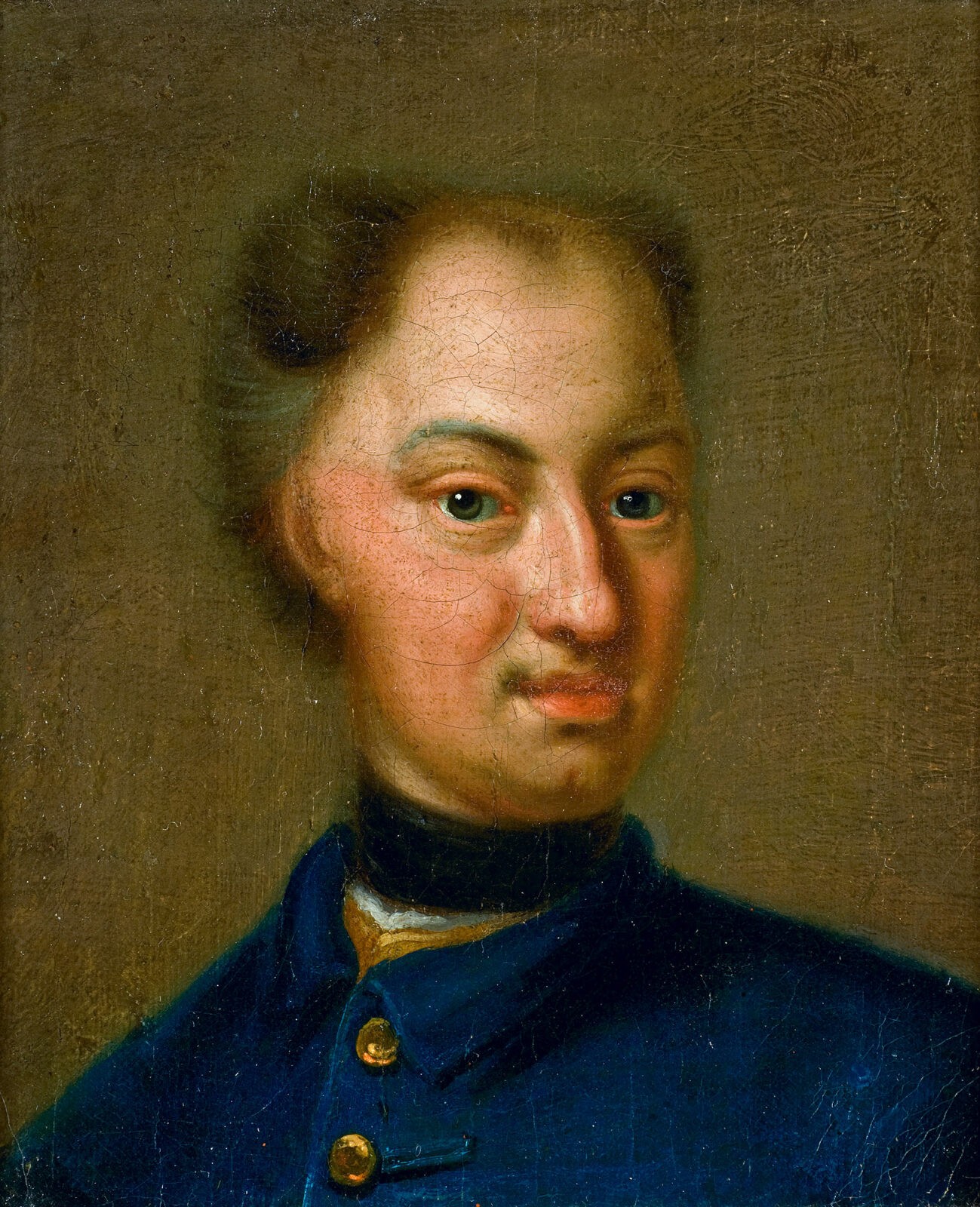
It was beneficial for Charles XII to pretend that “Mazepa’s gold” was not the state treasury of Ukraine, but the hetman’s private savings, since the king himself was going to put his hand into them. Therefore, he recognized the nephew of the deceased, Andrei Voinarovsky, as the only heir to the disputed wealth. The Ukrainian historian from the diaspora, Lyubomyr Vinar, who analyzed this conflict in detail, writes: “The commission ended the crackdown in the reproach of Voynarovsky, who was further supported by the hetman’s trust and administrator Ivan Bistrytsky to his wedding. Years later it turned out that the knowledge of Bistrytsky was not true.
The false witness confessed to the crime already on his deathbed - in 1717, eight years after the money was divided. The reason for his "repentance" is simple - Voinarovsky did not pay him for his services. Wanting to take revenge, two days before his death, Bystritsky wrote a letter to the Swedish king. In it, he tearfully complained about Mazepa's ungrateful nephew, who promised him 100 ducats so that he, as a man "who had been in the service under Mazepa for forty years," confirmed that the bags and barrels of gold, on which the hetman "left" to emigrate, were his private, not public good.
One hundred ducats is a considerable amount. Dukat is a gold coin weighing 3.5 grams. Thus, Bystritsky sold his conscience for 350 grams of gold. “And if I confirmed the truth,” he wrote, “I would have to declare that Mazepa appropriated the treasures of three hetmans - Bryukhovetsky, Mnogohrishny and Samoilovich, as well as three sons of Samoilovich ... The treasures of all these persons remained with Mazepa. Mazepa had public money for rent, and after the death of the hetman, Pan Voinarovsky received all those public values and kleinods.
In fact, these riches were appropriated by Mazepa, since, according to the aforementioned person who served under him for forty years, the late hetman came to Ukraine in only poor clothes, and died, "taking all the treasures of the public cash desk."
This letter publicized the ugly ins and outs of Mazepa's embezzlement of public funds and the greed of his imaginary "heir". According to Lubomyr Vinar, “the rebuffing before the Bendery Commission revealed a lot of negative pictures of A. Voinarovsky and the Cossack foreman. Here, in the middle of nowhere, the pursuit of the sister (nephew by sister. - O.B.) Mazepi for belongings is obvious, and she is completely intolerant to the chastisement of the foreman. From the other side, the sergeant-major, in an unruly hour, robbed Mazepa's money in the right to exploit public income. Like Bachimo, our first political emigration in the 18th century could not inwardly favor internal dissent… The main reason was incomprehensibility…were materially good.”
But Voinarovsky refused in favor of the general clerk Orlik from the mace. He preferred real money to the mythical title of hetman in exile. He was a young, frivolous man who loved women and the card game. In gratitude for the support, Mazepa's nephew lent Charles XII 611 thousand 66 thalers at 6 percent per annum, considering it a very profitable investment in his future, and indulged in the joys of life abroad, spending time traveling to all available European capitals from Istanbul to Stockholm.

Andrey Voinarovsky received the Ukrainian treasury thanks to a perjurer, but did not pay him off either.
Somewhere along the way, he also acquired a "wife" - the daughter of Pereyaslavsky colonel Anna Mirovich, who fell in love with Mazepa's nephew, left her husband, comrade Semyon Zabela, and went abroad.
It was a harmful adventurous woman. No one remembered her with a kind word - neither in Ukraine, nor among the “first wave” of Ukrainian emigration. Orlik believed that it was Anna who spoiled his relationship with Voinarovsky. And Orlyk’s wife in one of her letters spoke of her like this: “God knows about the current Mrs. Voynarovskaya, who has more to spare, what is Voinarovsky, what is the first man Zabili.” She married Voinarovsky in Bendery, contrary to all church laws - without divorcing her first husband. However, Voinarovsky did not survive it for long either. He fled from Anna in 1715 in Wroclaw, leaving her daughter Eleanor, and he left for Vienna with his son.
The following year, Voinarovsky, who had spent much money, came to Sweden to remind the king of his debt. But Charles XII, as usual, fought, he himself needed funds and was unable to pay off. Slurping without salt, Mazepa's nephew left for the free city of Hamburg, famous for its rich port and wide card game.
Local ladies and card sharpers were crazy about him. The tsarist government did not doze either, whose agents one by one caught the runaway Mazepins and returned them to Tsar Peter. Tsarist intelligence worked perfectly. Its officers, including the famous Captain Rumyantsev, who became famous for capturing Tsarevich Alexei, followed the frivolous Voinarovsky and even played cards with him, taking advantage of his well-known weakness.
Mazepa's nephew was seized right on the street when he was returning from dinner at Countess Koenigsmark's and taken to the Russian embassy. The Hamburg magistrate objected, but the Russian resident (envoy) stated that Voinarovsky was a fugitive tsarist subject, a embezzler of public funds, and should be immediately returned to Russia. “This gentleman is doubly sorry,” wrote the Prussian envoy in Hamburg. “The other day he lost all his money at cards, and now he could lose his life.”
A brief diplomatic struggle ensued over the prisoner. The Swedes claimed that Andrey was a colonel in their army. He himself made excuses that he had never "participated in any conspiracies with his uncle" against the king and expressed the hope that the king of Sweden would release him. But the king did not need the man to whom he owed so much. Having protested for the sake of appearance, the noble Europeans handed over the nephew of the outstanding embezzler to the paws of Tsar Peter. He spent the rest of his life, first in St. Petersburg under investigation, and then in Siberia, living for more than twenty years in a healthy Russian climate beyond the Urals and corresponding from time to time with his wife, who remained in Europe.
Unlike the wives of the Decembrists, Anna Zabela-Voynarovskaya decided not to follow her husband to distant Yakutsk, preferring to him also cold, but much closer Stockholm. There she began to extort debts from the Swedish government to her husband.
Account of the wife of two husbands to the heirs of Charles XII
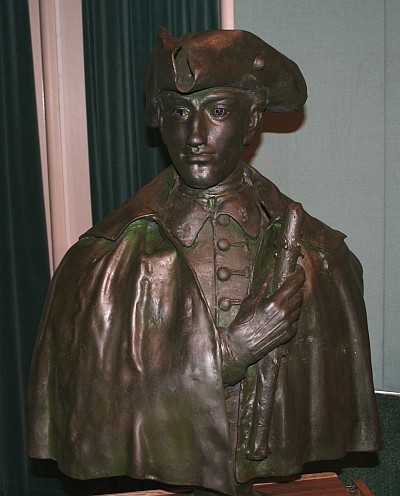
Andrei Voinarovsky bequeathed loans to the Swedish king to his illegal wife. He managed to get his will notarized. Anna, "an extremely agile woman," according to Lubomir Vinar, arrived in Sweden in 1718 and covered it with her pretensions like a snowfall. More than seventy of her letters in Latin, German, French and Swedish were found in the Swedish State Archives. No, she was a polyglot. But in Sweden there were enough lawyers who took care of the cases of the energetic wife of two Ukrainian husbands.
Charles XII acknowledged his debt. And how could he not admit it? The king waged endless wars, constantly needed money and had to take care of his "credit history". But, by coincidence, already in February of the following year, the "lion of the North", as the flatterers called him, was shot down in Norway during the siege of some fortress. Then Anna took up the heiress of the deceased - Queen Ulrika Eleonora, the sister of the childless Karl.
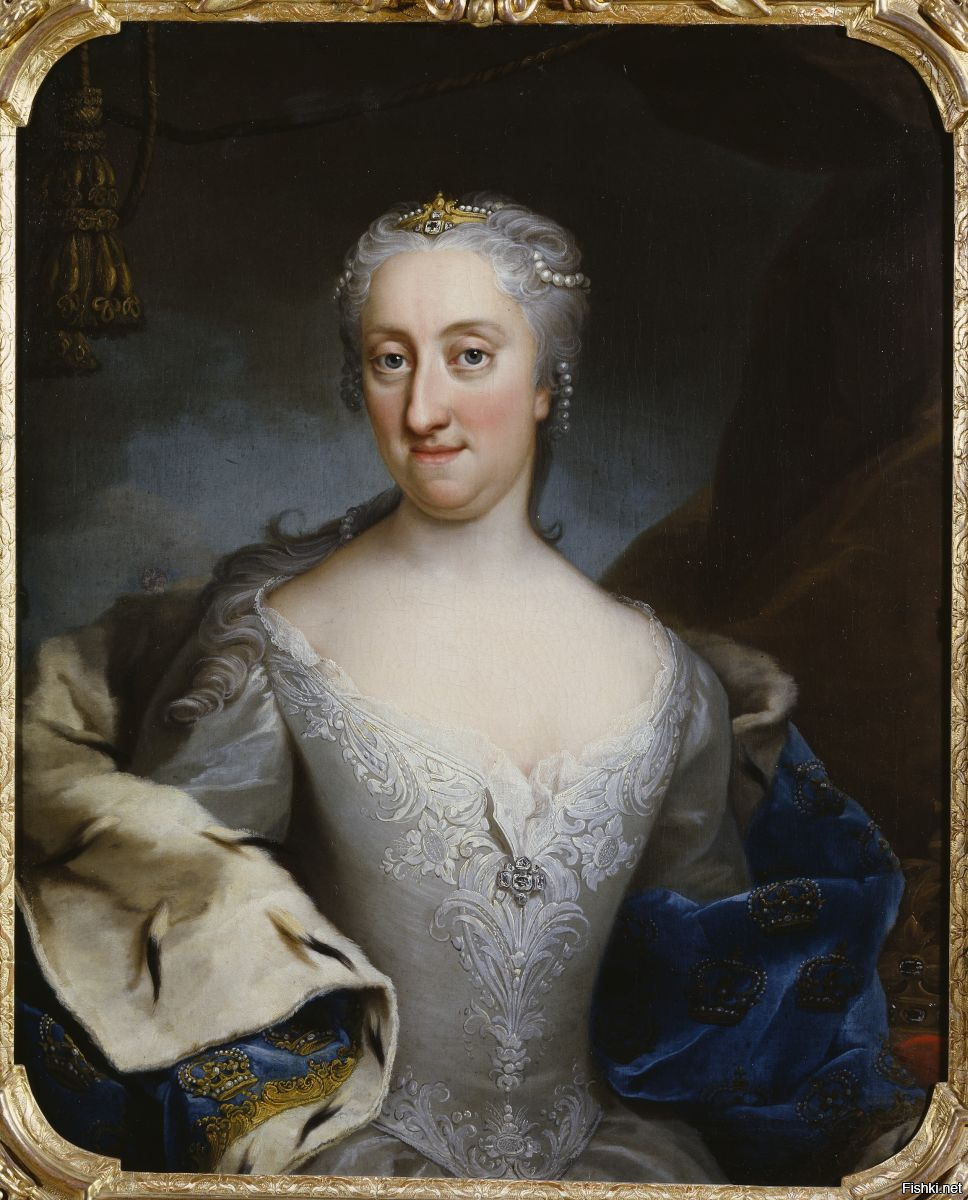
In the anarchy that followed his death (in fact, the parliament, the Riksdag, ruled the country), Mrs. Voynarovskaya felt herself in her place. She presented a bill for more than half a million Swedish whips - a million thalers with a tail. Anna was ready to refuse part of the debt. But 400 thousand thalers stubbornly demanded, in spite of any objections. Along the way, the harmful woman also bombarded other European courts with messages, inciting an international scandal.
At first, the Swedes paid off her with a pension, appointing 4,000 thalers of annual assistance. But she was not satisfied with this. In the end, the Voynarovskaya case was even considered at a ministerial meeting. After the report, they came to the conclusion that you need to somehow pay off the harmful woman. For, as Count Krongielm declared: “I am very afraid that if she does not receive satisfaction, then this matter will bring us trouble more than once. I think that if we come to an agreement with her, then Voinarovskaya will renounce a significant part of her claim and agree to be paid in installments over the course of five, six, and maybe even ten years. If she leaves without receiving anything, and puts forward her demands through the mediation of one of the ruling houses, then, for sure, we will not die so easily of this matter.
In the end, Wojnarowska received some cash, a house in Stockholm, and Tinnels Castle over Lake Maler. There was not enough money to maintain the castle, and the swindler, realizing that they got rid of her too cheaply, immediately began to sell the building in parts. First, she drove the copper roof for export. And everything else, left without a roof, under the cold Swedish sky simply fell apart, although it was built of stone.
The exact amount paid to the false wife of Voinarovsky by the Swedes is not known. Apparently, she was not great, since soon Anna got a job working part-time for Russian intelligence. An outstanding figure in emigration followed Hetman Orlyk, promised to lure him to visit her and hand him over to the tsarist agents - also for export, like the roof of a castle. In exchange, the lady wanted to receive her beloved husband from Siberia. One plan in her mind was replaced by another. In 1722, she even offered Peter I barter: you are my wife, I will give you half of what the Swedes owe me. Her arrogance, like her enterprise, knew no bounds. Only death put an end to it.
However, a document that would testify that the Swedish government received a waiver of claims from Voinorovskaya has not been found by historians.
How to get back the money stolen from our people
As you can see, "Mazepa's gold" was recognized by Sweden as his personal property, and not the treasury of the Ukrainian state, on the basis of perjury. Voinarovsky had no rights to this money. His “wife” has even less rights to them. No one bred her with her first husband, Zabela. This means that she cannot be considered the legitimate half of Voinarovsky. According to church and civil laws, Anna Zabela-Voynarovskaya is a criminal guilty of bigamy. The Swedish government did not know about this fact, otherwise they would not even pay off her in small things.
It turns out that Sweden still owes Ukraine a huge amount. But how much, let's figure it out. In 1709 it was 611 thousand 66 thalers. If we take into account the 6 percent per annum that has accumulated over three centuries, then today Sweden owes us 11,610,254 thalers (I write in cursive, as in a financial statement: “eleven million, six hundred and ten thousand, two hundred and fifty-four thalers”).
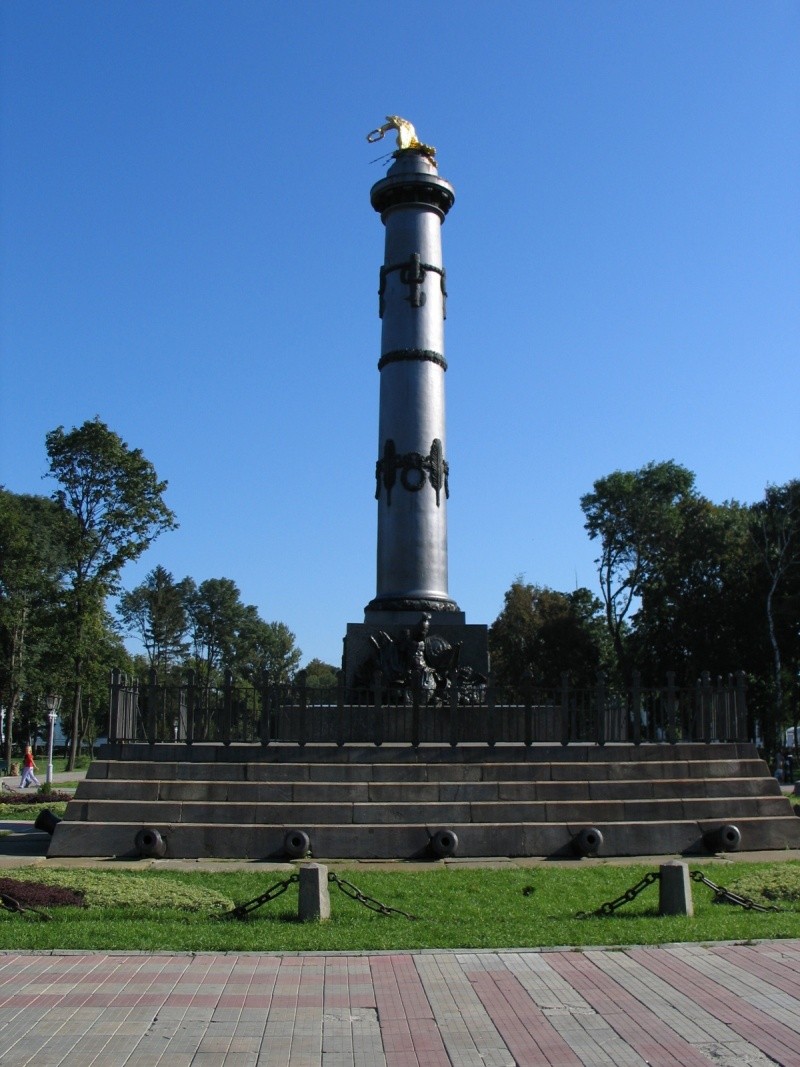
Each Swedish thaler (locally pronounced "daler") contained 28 grams of pure silver. That is, in silver, Sweden owes 325087 kg and 112 gr. The cost of one gram of silver today is about 50 cents, at the rate of the National Bank. When translated into US dollars - the universal means of payment of our days - a tidy sum accumulates: 169 million 633 thousand 783 dollars.
But it is even more interesting if you count it at the rate of the numismatic market, where old coins are exhibited. That's where the bill can go into billions - naturally, for the entire treasury appropriated by Mazepa and "borrowed" by Karl.
Charles XII belonged to the Palatinate-Zweibrücken dynasty. Sweden is now ruled by the Bernadotte dynasty. But it does not matter. Karl did not lend money as a private individual, but as head of state. Blood relationship does not matter in this dispute. But the right of inheritance is important. Today's Sweden is the direct successor to Karl's Sweden. And the current kings are the heirs of his property and his debts.
Of course, there will be an international scandal. But Romania quite recently was not afraid of such a hype, demanding a piece of the shelf near the Serpent's Island. And won the fight. If Ukraine persists, Sweden can be dragged to the international court in the same way.
This lawsuit has a huge documentary base. To a large extent, these documents are still published. After all, Swedish historians did not suspect that Ukraine would gain independence and be able to demand what was taken from it at the beginning of the 18th century by invaders from Scandinavia and their puppets - Mazepa and Voinarovsky.